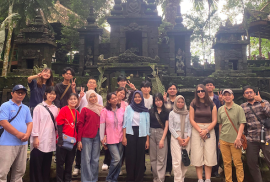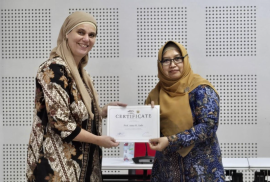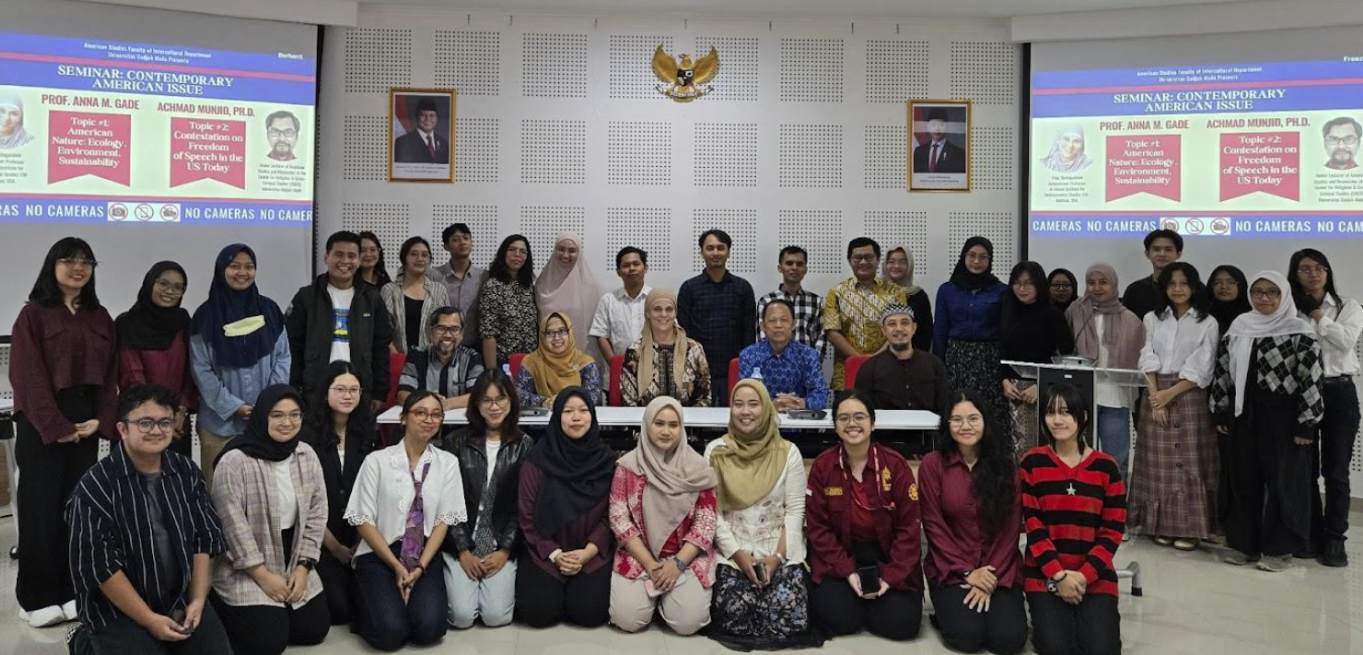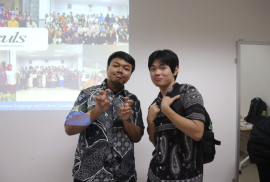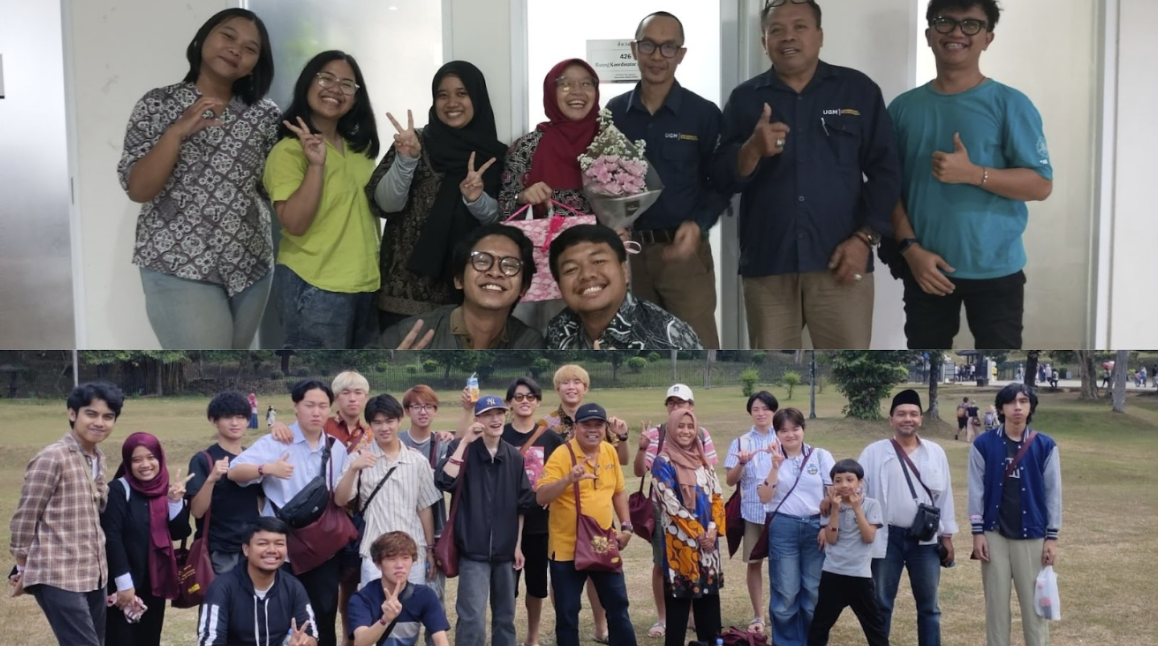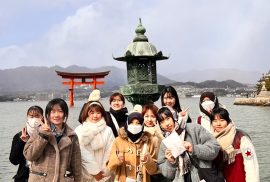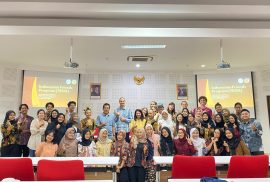Yogyakarta, 17 May 2025 – Exchange students from various universities, both domestic and international, gathered at Oemah Petroek, Kaliurang, for a full day of exploration and dialogue. Organised by the Faculty of Cultural Sciences (FIB) of Universitas Gadjah Mada (UGM), the event aimed to strengthen partnerships and enhance educational experiences in line with the Sustainable Development Goals (SDGs), particularly those focusing on improving the quality of education and fostering partnerships to achieve these goals.
The attending exchange students represented institutions such as Universitas Brawijaya, Universitas Halu Oleo, Universitas Diponegoro, and Universitas Jambi, along with peers from South Korea, Taiwan, Japan, Italy, and other countries. This diverse gathering highlighted the importance of cultural exchange and educational collaboration, which are essential to achieving the SDGs.
The FIB UGM leadership present at the event included Prof. Dr. Setiadi, S.Sos., M.Si. as Dean of FIB UGM; Dr. Nur Saktiningrum, S.S., M.Hum. as Vice Dean for Academic and Student Affairs; Mimi Savitri, M.A., Ph.D. as Vice Dean for Research, Community Service, Cooperation, and Alumni; and Suray Agung Nugroho, M.A., Ph.D. as Vice Dean for Finance, Assets, and Human Resources. Also in attendance were Erika Purnawati, S.Kom., M.Cs. as Head of the Administration Office and Yusuf Sulistiyo, A.Md., S.Psi., M.M. as Academic Officer, along with several representatives from the public relations and cooperation units.
The heart of the event was a discussion session in which exchange students shared their experiences at FIB UGM. They offered constructive feedback and suggestions on their academic journey, highlighting both the positive aspects and areas for improvement. Students expressed appreciation for the supportive academic environment at FIB UGM, noting the dedication of lecturers and the availability of resources. However, they also pointed out challenges that the faculty and university leadership took note of for future improvements.
Following the main session, students were given a tour of Oemah Petroek, a cultural museum showcasing the rich traditions of the archipelago. Students were encouraged to immerse themselves in the local culture, a vital component of their exchange experience. This hands-on approach aligns with the SDGs’ goal of promoting quality education and lifelong learning opportunities for all. The event concluded with a follow-up address by Prof. Dr. Setiadi, M.Si.
Overall, the exchange students’ visit to Oemah Petroek was not only a cultural excursion but also a vital platform for dialogue and partnership. By addressing challenges and celebrating the successes of their educational experience, the event contributed to the broader goals of sustainable development in education. The collaboration between FIB UGM and its international partners reflects a commitment to building a global learning community.
[Public Relation Faculty of Cultural Sciences, Bulan Churniati]

